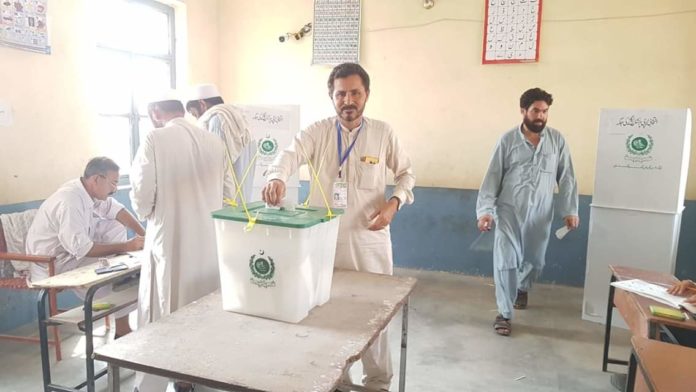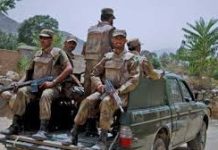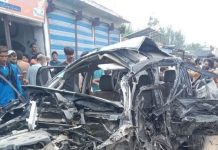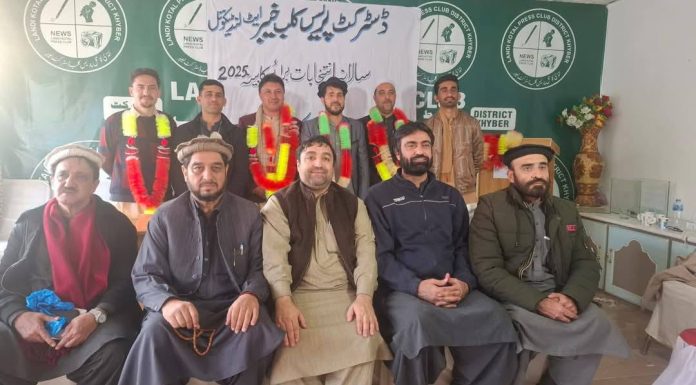By Ashrafuddin Pirzada
KHYBER DISTRICT (KP): The erstwhile Fata inhabitants who struggled for peace and political reforms in the past decades have marked the historical day by casting their vote for the first time in the provincial elections conducted on Saturday, July 20, 2019.
The newly merged tribal districts of Khyber Pakhtunkhwa witnessed a historic moment on Saturday as polling was held for 16 provincial assembly seats. Although the turnout was initially slow when voting began at 9:00 am, residents, especially in remote areas, gradually arrived at nearby polling stations throughout the day. The polling process continued smoothly until 5:00 pm without any break.
This was the first provincial election held in the region after the formal merger of seven tribal agencies and six Frontier Regions into the Khyber Pakhtunkhwa province in the last quarter of 2018. The decision to merge the Federally Administered Tribal Areas (FATA) into KP was taken unanimously on the final day of the outgoing National Assembly.
Field reporters across various tribal districts confirmed that women also participated in the elections. However, in some areas, such as Waziristan, the turnout of female voters remained low in the early hours.
Brigadier (R) Mehmood Shah described the election as a test case for the newly elected members of the KP Assembly, who are now expected to focus on communication, infrastructure, and education in the tribal belt. “The tribal people have suffered in the past, but now they hope their pain will be acknowledged and addressed,” he said.
Deputy Commissioner of Khyber District, Mehmood Aslam Wazir, termed it a historic day for the people of the tribal region. Speaking to the media during visits to polling stations in the war-affected Bara tehsil, he appreciated the role of the government, security forces, and citizens. “I salute the Pakistan Army and the people of this region for restoring peace through their sacrifices. Today, people are casting their votes without fear,” he stated.
Political analysts and commentators noted that voters participated in this new political process with hope and anticipation that their lives would improve once the newly elected representatives joined the KP Assembly.
According to Rahimullah Yusufzai, resident editor of The News in Peshawar, the elections in the merged districts may not carry much weight for the PTI-led KP government due to its existing majority. “These 16 seats may not alter the balance of power, but the elections themselves are significant for the people of the region,” he said.
All major political parties, including the PTI, ANP, JI, and JUI-F, fielded candidates in nearly all constituencies. A total of 281 candidates, both party-nominated and independent, contested for the 16 newly created provincial assembly seats.
The Election Commission of Pakistan established 1,897 polling stations across the tribal districts. Of these, more than 400 were declared sensitive or highly sensitive. The Pakistan Army, Frontier Corps, and police personnel were deployed to ensure a peaceful and secure polling process.
Notably, tribal women were not only seen casting votes, but a number of them also contested the elections — a rare and historic development in the region.
The international community welcomed the elections. British diplomat Thomas Drew posted on social media, saying: “The tribal districts are electing their representatives in the KP Assembly for the first time. I hope these elections are held peacefully.”
According to official sources, the polling day passed without any major incidents. However, a minor scuffle between rival groups occurred in Landikotal tehsil of Khyber District, while in Mohmand District, an exchange of gunfire between supporters left two people injured. Security forces quickly brought the situation under control.
Prominent journalist and anchorperson Sohail Waraich commented that many candidates from influential and wealthy families were granted party tickets, which could affect the fairness of the electoral process. “Business tycoons entering politics may influence election outcomes, but this trend could change with time,” he observed.
In contrast, Jirga host Saleem Safi disagreed, stating that parties such as Jamaat-e-Islami, ANP, and JUI-F had given tickets to long-standing party workers. He noted that ANP, in particular, ran a stronger campaign compared to other parties.
Voters — mostly youth — showed excitement and energy outside polling stations. Many were seen singing traditional songs, beating drums, and celebrating their participation in what many described as a historic and long-awaited democratic process.
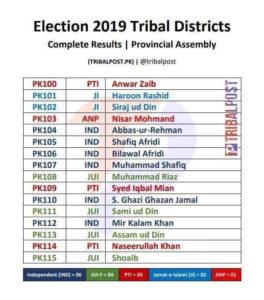
It is learnt at the local level in the tribal districts that gone are the days when they were being influenced before and used to cast their vote for the appeasement of their elders, religious scholars and influential but this time they will vote for those who can create jobs for them, bring business activities and peace for them.


